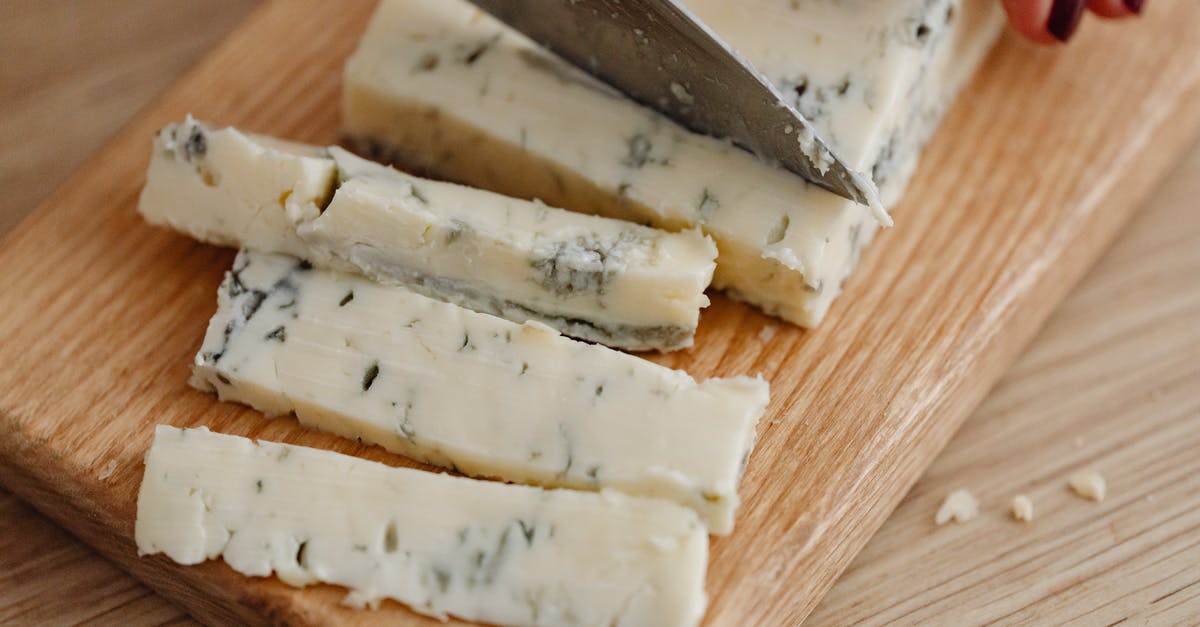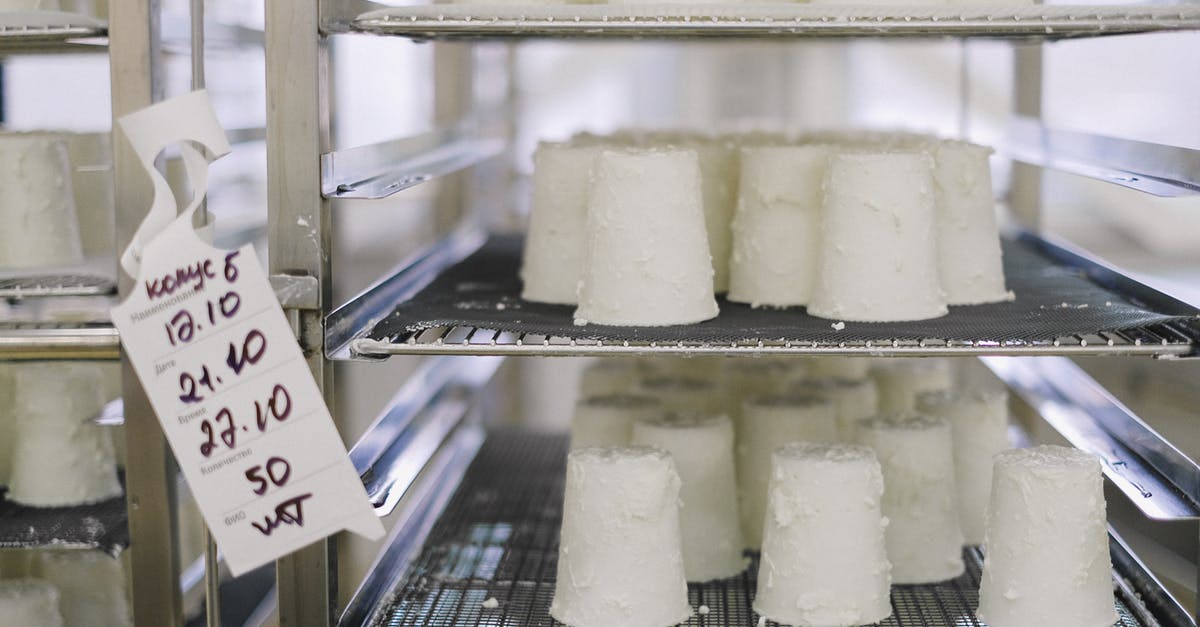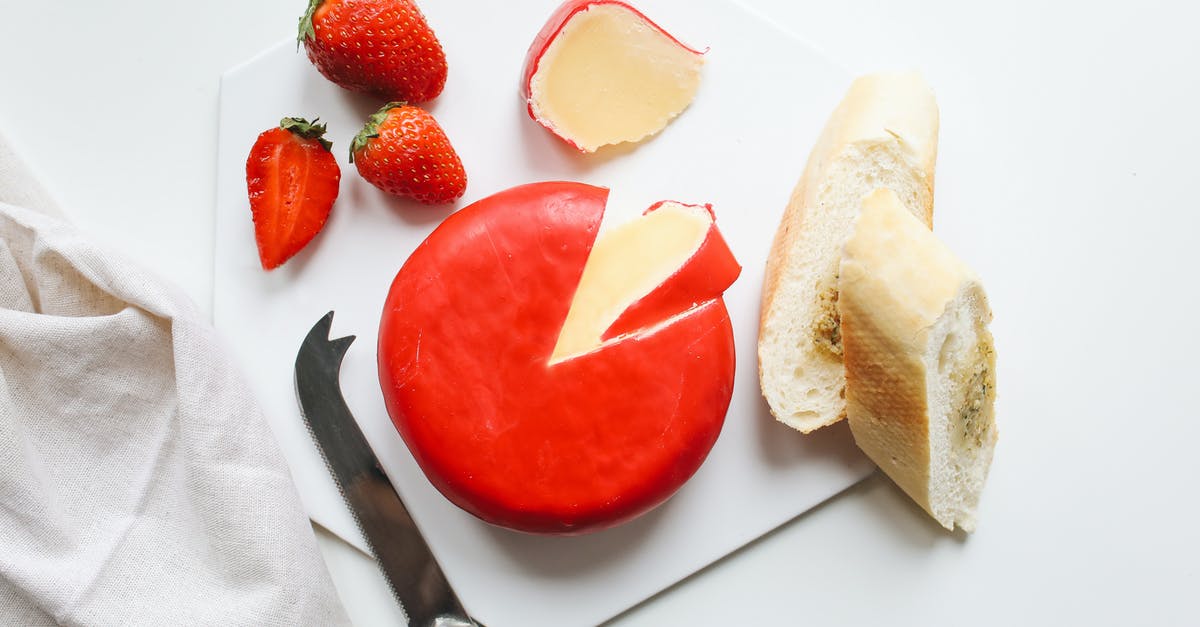Unmeltable cheese

I am using the same cheese I have outlined in my previous question.
My problem is that it refuses to melt completely.
I know various cheeses are made up of different ratios of water and fat and the fatter a cheese is the less fluid is when melting. So I guess this cheese is almost completely fat, because when I try to melt it into cream or something to make spaghetti sauce it definitely melts but never completely. Even after being "cooked" for more than an hour.
What I do is this - in my Kenwood Cooking Chef mixer I put cream and chop the cheese into pieces, remove the rind, and drop them in, as well. This mixer can cook in its bowl, while its stirring, with great temperature precision, which is great because I set it to 90 degrees Celsius and set it to stir the mixture every so often. My idea was to heat the cream as much as possible, without causing it to burn or boil, while simultaneously heating the cheese a lot so it would melt (it a previous experiment, where I just dumped a piece of cheese into the bowl I found out a temperature of lower than 60C did nothing to the cheese (at least not for a while and I hate waiting :D ).
However even after 1h30mins most of the cheese had melted but there were still bits left (and the fat of the cream separated, but that's not important right now). Later I tried a test - I put what I had left of the cheese into the bowl (after removing the rind) and set it to 70C. After 1h20mins (nothing else in the bowl but it gets heated quite well, so I'm sure the entire piece of cheese was well heated) it had changed its colour a bit but it hasn't melted A BIT. I cranked up the temperature to 90C thinking this is folly but sanity wasn't getting me anywhere and I had the bright idea to "stir" it with a wooden spoon. Basically it was soft inside and "mushed" or fell apart when prodded with the spoon and started to sizzle a bit so I turned the temperature down to 80C and poured some milk and turned the constant stirring on, thinking the heat does not melt the cheese but it sabotages its internal structure and you need to "agitate" it so it would incorporate into a liquid. Well an hour and who-knows-how-long later, again, the cheese had mostly melted, but there were still little bits left. And I'm 18530% sure the mixture was REALLY hot, like 80C hot.
Why does this happen and how can I melt this insolent cheese completely?
Thank you!
Best Answer
Melted cheese is a mixture of mostly protein, fat, and water. The protein (mostly casein) will tend to clump into rubbery bits, but is held apart by the fat and water, giving the melted cheese texture you're used to.
Your cheese did melt -- you saw that yourself at 90 degrees -- but when you then cooked and agitated it for a long time, you broke up the mixture, allowing the casein to clump up. In other words, your problem is not an unmeltable cheese, but a curdled sauce. The fact that you ended up with "bits", when you started with "pieces", is evidence of that.
To solve this, use lower temperatures, less agitation, and more stabilizers. Some cheese will not produce a smooth cheese sauce (not because it won't melt, but because it won't be smooth once melted). In general, the more rubbery the cheese is to begin with, the more difficulty you'll have when using it in a sauce.
Pictures about "Unmeltable cheese"



What cheeses dont melt?
But as the weather gets hotter, maybe we should take a look at some cheeses that don't melt. There's a family of semi-firm cheeses \u2014 among them, queso panela, queso fresco, paneer, halloumi, feta, cotija, ricotta and soft goat cheese \u2014 that won't melt over direct or indirect heat in your kitchen.What are the Meltiest cheeses?
The Best Cheeses For Melting- Fontina. Fontina can be buttery and a bit fruity; Fontina Val d'Aosta, from Italy's Aosta Valley, is firmer, more pungent, and nuttier (and always made of raw milk). ...
- Gouda. ...
- Asiago. ...
- Taleggio. ...
- Reblochon-Style. ...
- Provolone. ...
- Mozzarella. ...
- Gruyere.
How do you Unclump melted cheese?
This is a combination of the type of cheese and too much heat. Some cheeses melt more readily (mozzarella for example), but all of them will seize up if they are heated too much too fast - the proteins 'curl up' and separate from the fat and water in the cheese.I tried burning Kraft American Cheese and this happened!
More answers regarding unmeltable cheese
Answer 2
A guess would be that it's because it's a "processed cheese" according to the label shown in your other question.
Processed cheese contains other non-cheese ingredients, and I suspect it's these ingredients that are not melting. The bits you're left with are probably the gloop that isn't cheese.
Sources: Stack Exchange - This article follows the attribution requirements of Stack Exchange and is licensed under CC BY-SA 3.0.
Images: Karolina Grabowska, Anna Shvets, Önder Örtel, Polina Tankilevitch
